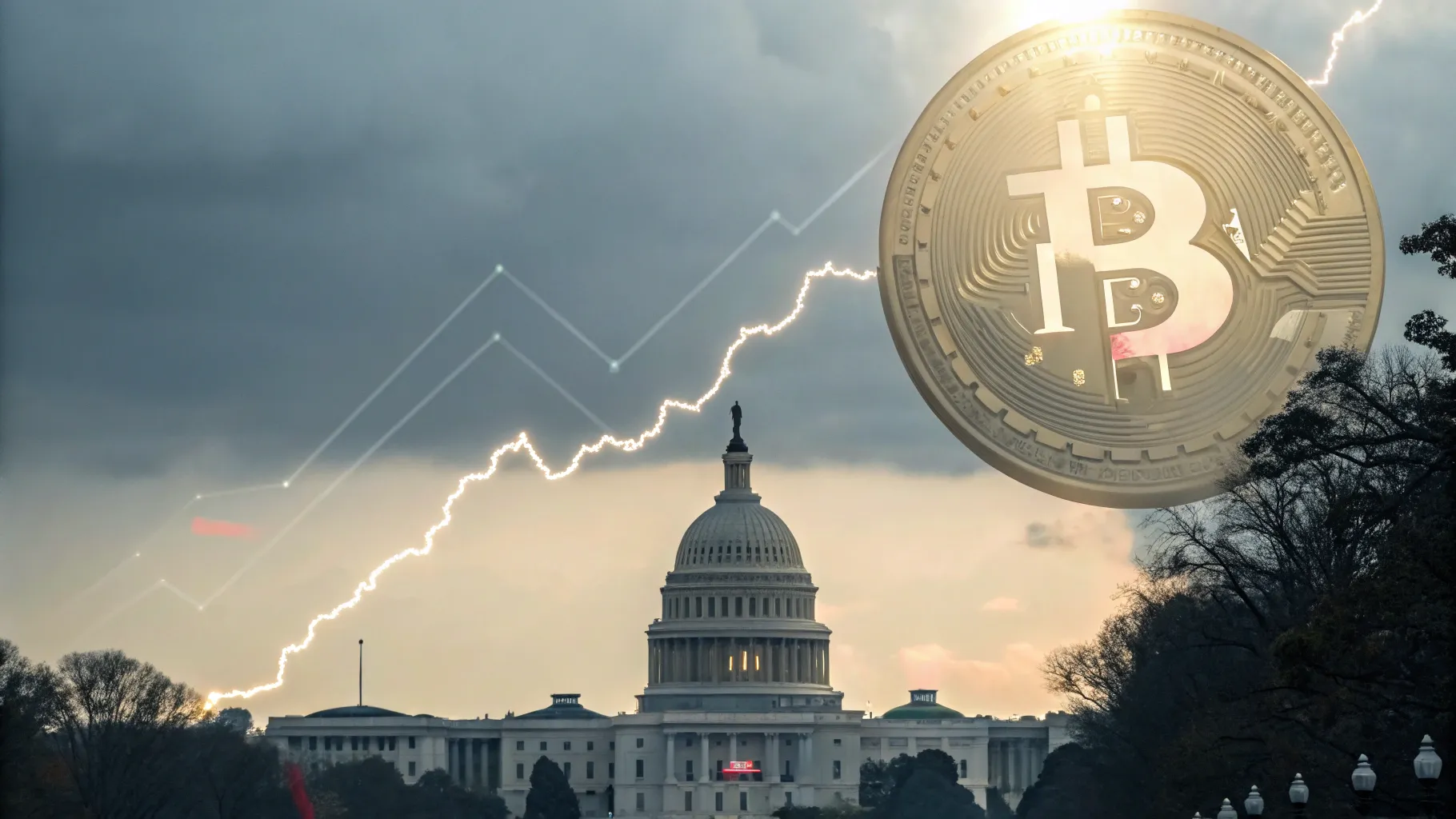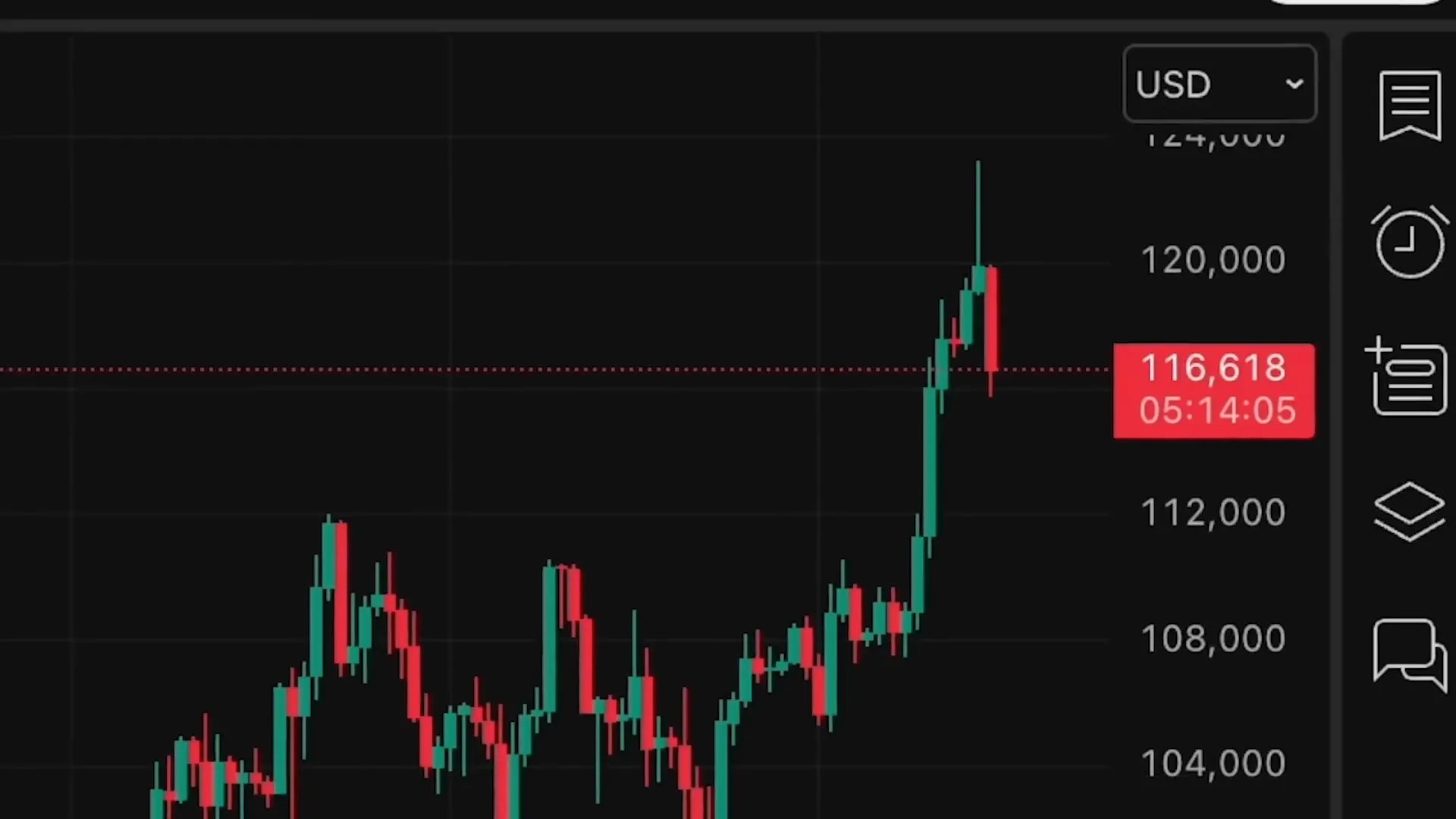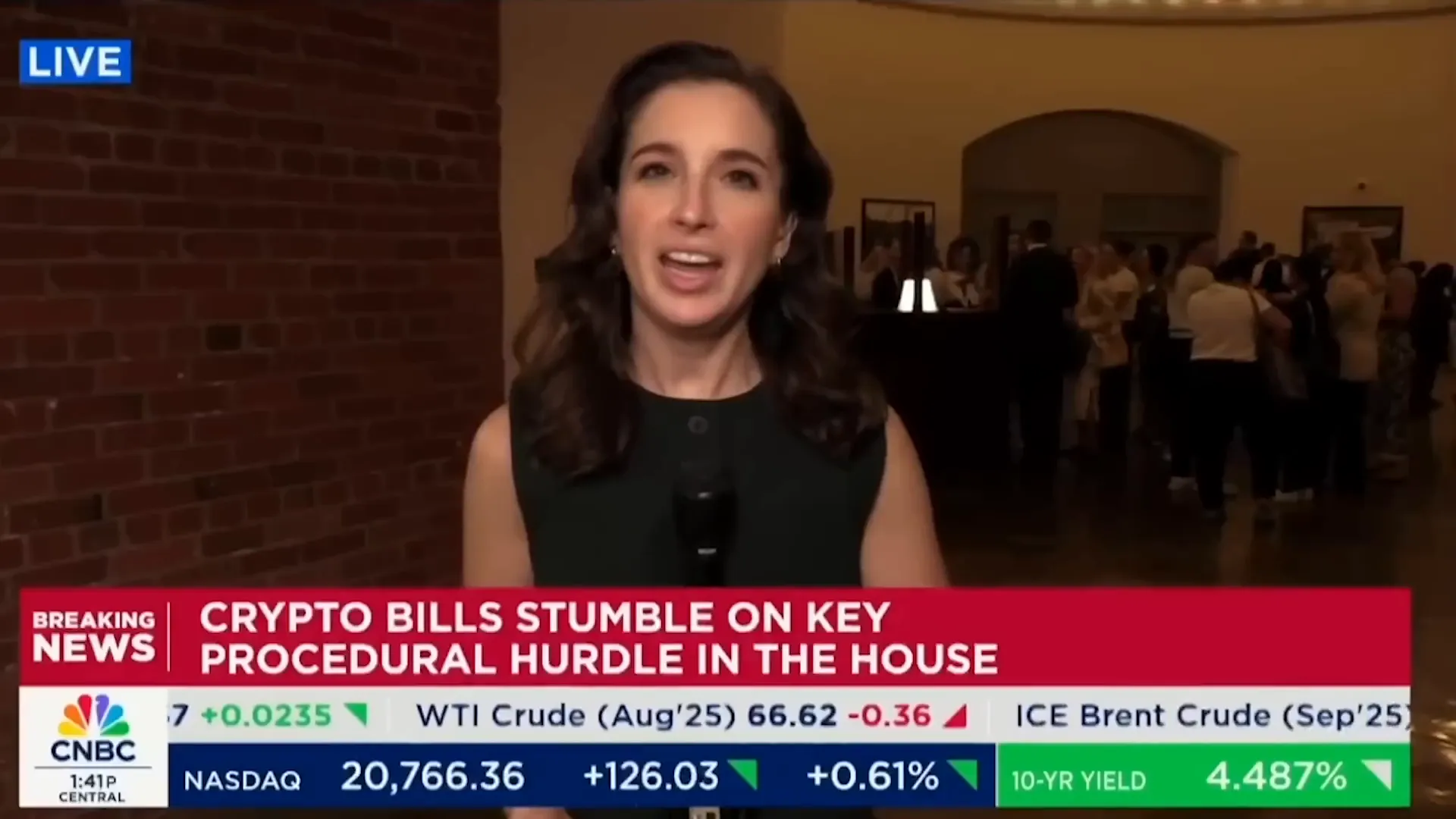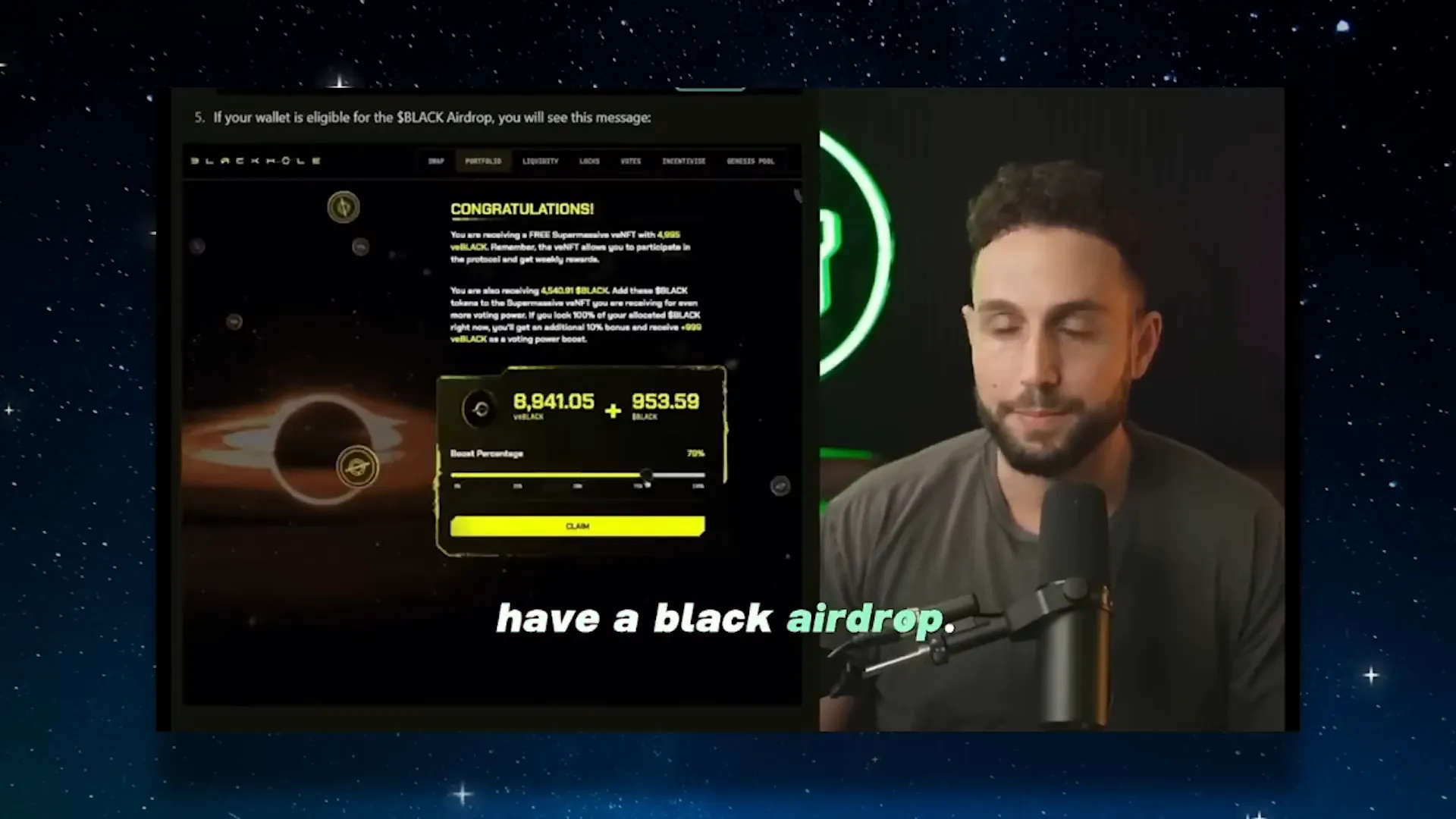
If you're following the cryptocurrency world closely, you've probably heard the recent buzz around Bitcoin's big breakout and the anticipated crypto regulation this week. As reported by Altcoin Daily, the landscape of cryptocurrency and bitcoin is evolving rapidly, with significant developments unfolding in the U.S. Congress and the broader crypto market. Let’s dive into what’s really happening, why Bitcoin's price is dipping, and what it means for the future of crypto regulation and altcoins.

Table of Contents
- Why Is Bitcoin’s Price Dipping Today?
- The Crypto Bill Procedural Vote: What Happened?
- What Does This Mean for Crypto Regulation and the Future?
- Altcoins to Watch: BitTensor and Black Hole DEX
- Conclusion: Stay Informed and Stay Ready
Why Is Bitcoin’s Price Dipping Today?
Bitcoin has been on an impressive run lately, with some enthusiasts predicting it could hit $200,000 this year. However, the price recently experienced a dip, which might have some investors worried. But here’s the thing — this kind of correction is completely normal for Bitcoin.
The recent surge from around $108,000 to over $122,000 happened rapidly due to a massive short squeeze. In less than a minute, $1.3 billion in short positions were liquidated, pushing the price higher in a liquidation-driven rally. On-chain analyst Willie Wu notes that while this run has plenty of legs left, Bitcoin needs to consolidate now. The correction is healthy, signaling a shift from neutral to bullish sentiment among investors.
"Bitcoin shoots up, consolidates for weeks and months, shoots up, five steps forward, two to three steps back, over and over and over again." — Willie Wu
What’s fascinating is that the data shows a large number of shorts being liquidated on the upside, but very few to the downside, indicating uncertainty about Bitcoin’s short-term direction. Despite this, the long-term outlook remains promising, especially with the crypto-friendly administration signaling upcoming regulation.

The Crypto Bill Procedural Vote: What Happened?
Now, here’s the breaking news that’s affecting the market sentiment. A key procedural vote in the House of Representatives, which would have paved the way for votes on three different crypto bills, has failed. This procedural vote was essential to moving forward with the crypto legislation expected this week.
It’s important to clarify that this vote wasn’t just about crypto bills; it also included funding for the defense department. Some representatives were reportedly upset about the defense-related provisions, which added complexity to the vote.
Congresswoman Marjorie Taylor Greene publicly expressed concerns about the bills, particularly regarding the lack of sufficient measures to prevent the creation of a U.S. Central Bank Digital Currency (CBDC). She called for more oversight to protect against this possibility.
While this failure is a significant wrinkle in the plans for “crypto week” in Congress, it’s not the final vote. It’s just a procedural hurdle that slowed down progress, and Altcoin Daily promises to keep the community updated as new information emerges throughout the week.

What Does This Mean for Crypto Regulation and the Future?
This administration has shown itself to be the most crypto-friendly in U.S. history, though it’s still early days. Two key pieces of legislation — the Genius Act and the Clarity Act — are shaping the regulatory landscape. Unlike the previous SEC approach focused heavily on enforcement, this administration is prioritizing regulatory clarity.
One crucial factor is whether a crypto asset is classified as a commodity or a security. This distinction opens up many possibilities for the industry. Despite the procedural vote setback, the general direction remains bullish for crypto regulation, which could unlock new opportunities for investors and projects.
Many experts remain optimistic about Bitcoin’s price trajectory, with some estimating it could reach $200,000 this year. The sentiment is that Bitcoin and the broader crypto market have much more room to grow.
Altcoins to Watch: BitTensor and Black Hole DEX
While Bitcoin dominates the headlines, some altcoins are showing interesting movement today. BitTensor (TAO), an AI-focused altcoin, is one of the few in the green. This surge is linked to mainstream news that Nvidia can now sell AI chips to China again, following a deal brokered by President Trump. This opens a massive new market for Nvidia and has positively impacted BitTensor, which is considered a blue-chip AI coin and is held in some public company treasuries.
Another exciting development is the launch of Black Hole (BLACK), a new decentralized exchange (DEX) built on Avalanche. This mirrors what Aerodrome Finance did for Coinbase’s Base ETH Layer 2 but tailored for Avalanche. The launch directly benefits Superverse Super token holders, with 100% of the coins being distributed to the community — the founders keep none.
Black Hole offers users a unique airdrop consisting of two parts:
- A free VE NFT that grants permanent exposure to DEX rewards, including fees paid in Bitcoin, Ethereum, AVAX, and other currencies.
- An option to “supercharge” the NFT by locking tokens, which more than doubles its power and entitles holders to perpetual rewards.
This is a major alignment between the project and its community, emphasizing long-term value over short-term gains. Staking Superverse tokens and participating in Black Hole’s ecosystem could be a game-changer for loyal holders.

Conclusion: Stay Informed and Stay Ready
The cryptocurrency landscape is always dynamic, and this week has shown how regulatory developments and market mechanics like short squeezes can cause volatility. While the procedural vote failure in Congress is a setback, it’s just one step in the legislative process, and the overall regulatory environment remains promising.
Bitcoin’s price movements are typical of its volatile nature, and healthy consolidations often precede further growth. Meanwhile, altcoins like BitTensor and new projects like Black Hole DEX provide exciting opportunities for diversification and long-term engagement.
For crypto holders and investors, the key takeaway is to stay informed with all the facts — not just the good news — so you can make the best decisions for your portfolio. The future of cryptocurrency and bitcoin remains bright, especially under a crypto-friendly administration committed to clarity and innovation.
As always, keep an eye on updates, be patient through market fluctuations, and consider the long-term potential of this revolutionary technology.
FAIL! CNBC Reports Bitcoin & Crypto Bill Vote Just FAILED in Congress.. What Now?. There are any FAIL! CNBC Reports Bitcoin & Crypto Bill Vote Just FAILED in Congress.. What Now? in here.
